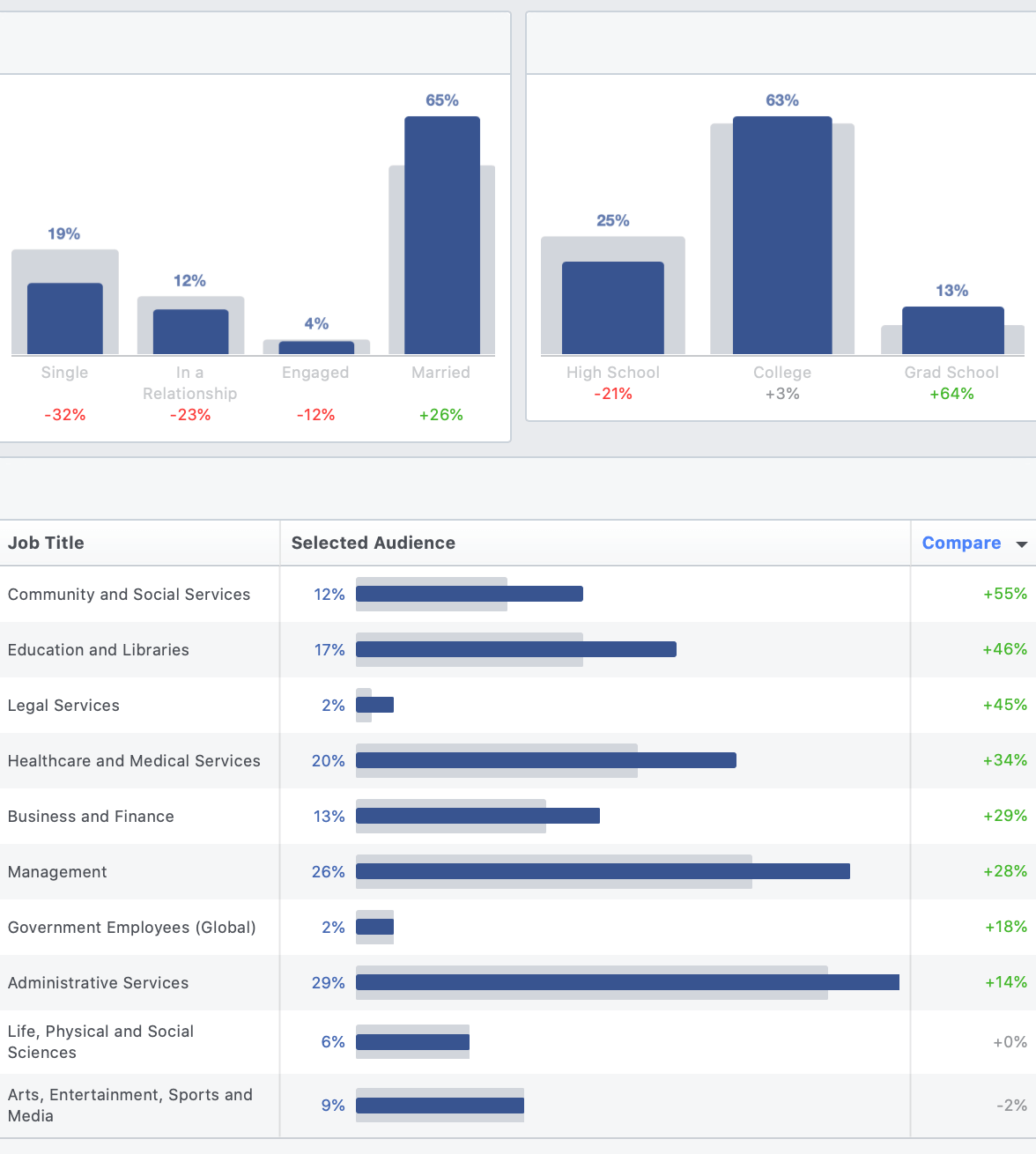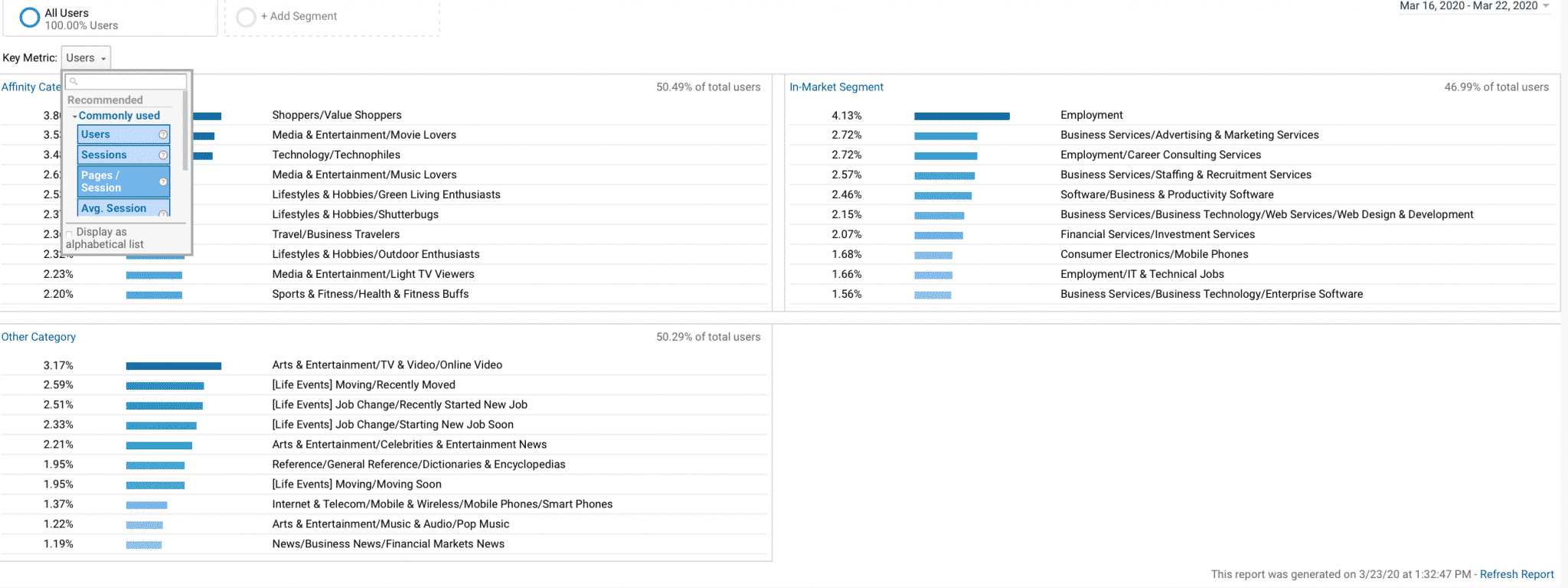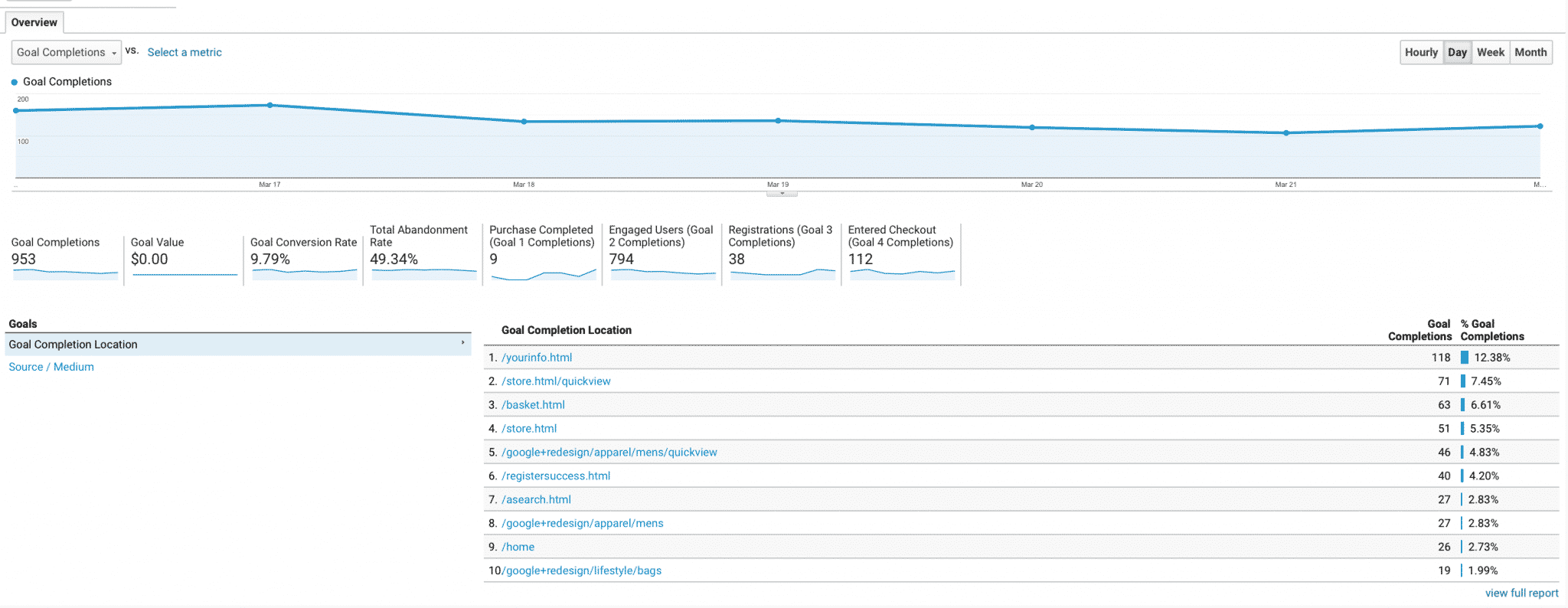by Stefan Kapetanovic • March 25, 2020
4 Reasons Accurate Analytics are Crucial for Your Business’s Success
If you aren’t paying careful attention to your analytics, you’re letting your business down.
Plenty of businesses and advertisers treat marketing like it’s a total free for all, essentially throwing handfuls of spaghetti at the wall to see what sticks. While creativity is great in marketing, the very last thing you want to do is be essentially taking unnecessary stabs in the dark, trying to guess what might work without any real data-driven strategy behind it.
Frequent reviews of accurate, detailed analytics are crucial for your business’s success. Even if you want to try out new strategies, creatives, or even new messaging for new audiences, you should always go back to the knowledge and data you already have from your business.
In some cases, you can even use data and analytics from both direct and indirect competitors to guide you. Either way, whether you’re using your data or someone else’s, accurate analytics help you assess which of your campaigns are driving results.
If you aren’t sure if you want to invest time and energy into reviewing your analytics, keep reading. In this post, we’re going to break down 4 key reasons why accurate analytics are so important for your business’s growth.
1. They Allow You To Accurately Measure & Track Data
The first reason you need analytics is relatively self-explanatory, but it’s still so, so important: Strong analytics platforms are the only way you’re going to be able to accurately measure and track your data.
It doesn’t matter what platform you’re using. Shopify, WordPress, and BigCommerce all have tools that are designed to help you sell more, but they can only do so much. Your business needs to be looking at the correct data (and ideally from multiple channels including social media, PPC, and site traffic). This will help you assess which channels are driving the most traffic, which are driving the most high-value traffic, and what you can do to position yourself to be successful moving forward.

You want to make sure that your site traffic is increasing regularly and consistently and that your campaigns are moving in the right direction. If you’re investing an enormous portion of your ad spend into increasing direct traffic and traffic coming from organic search, you’d want to see that reflected on your site traffic.
2. They Allow You to Better Understand Your Site Visitors, Prospects and Customers
Your ideal customers should always be at the center of everything you do with your marketing campaigns. This means that you need to have a solid understanding of both the audience you want to reach and the audience you currently have.
Multiple analytics platforms will help you assess exactly who you’re currently attracting as site visitors, prospects, and customers. Facebook’s Insights, for example, can show you detailed information about your audience, including their age, gender, relationship status, income level, and interests. This can show you what audience members are connected to your brand enough that they want to follow you on Facebook, which is valuable information.

Google Analytics offers the same audience demographic features, showing you key information like their interests, lifestyles, and behaviors along with age, gender, and location. You can see how this information shifts from standard site visitors to those who are more engaged, like those who view more pages per session or those who come back to your site more often.

This data is invaluable, giving you incredible insight into what segments of the audience you’re attracting and which ones you’re most successfully converting. Keep in mind that the more you understand who you’re selling to, the easier selling becomes.
You can use this data to reshape or create new buyer personas, which you can use to create new and more effective campaigns moving forward. Make sure that you’re reaching the audience segments that you want, and if you’re not, try to look for reasons why that may be happening.
3. They Help You Optimize for Conversions
Once you really understand your customer’s demographic information and the audience niches you’re reaching, you can optimize your campaigns for these individual users. You can also consider what audience niches you aren’t reaching, and come up with new ways to target them.
If, for example, I’m selling a home exercise bike like the Peloton, my analytics might tell me that I’m reaching busy parents who don’t have time to go to the gym, individuals who are working out for the first time, and busy professionals.
I may not, however, be reaching intense athletes or small cycling studios, which could be high-value clients and even potential influencers. Shifting the messaging and potentially even advertising platforms would be important to start selling to these types of customers.
The level of data you can gain from analytics is extraordinary when you take the right steps. You can create individual shortened, trackable URL links for each individual ad campaign you run if you choose, which will allow you to see which specific ads are driving the most traffic and the most conversions.
Evaluate different channels and see which bring you the most high-value traffic; if you can find a great balance of a marketing mix that leverages multiple channels to bring in high-value traffic at the lowest acquisition cost possible, you’re in great shape for growth and scaling moving forward.

You should also evaluate the individual pages on your site, setting up Goals to track potential paths to conversions. See which have high rates of drop-off, and which are most effective at driving users through to becoming customers. You can reoptimize weaker pages, and prioritize higher-converting pages when linking.

With the backbone of accurate data, you can test and iterate on capturing markets and growing process so that you position your business as an industry leader. Without analytics, this would be a much greater challenge.
4. They Can Help You Create a Customer-Centric Online Presence
Creating a strong online presence will help you stand apart from your competition, attract your target audience, and drive conversions. This all comes down to establishing a brand and representing it well, allowing you to drive awareness, engagement, and loyalty over a period of time.
You want to use the data you’ve uncovered with your analytics to develop a brand and company that is customer-centric. Customers will immediately notice the difference and respond because you’re putting work into creating a core unit of avid fans.
You’ll be able to do this best once you understand your customers’ needs and what their motivation is for buying your product or service. And once you develop those avid-fans-turned-advocates, you can use the analytics to then optimize your campaigns and nurture the audiences with the campaigns, messaging, and even products and services that they want most.
You’ll be able to assess this by careful review of your analytics. Let’s say that you’re selling that Peloton-styled bike, and you’re noticing that campaigns talking about “saving time by working out from home” drive more high-value clients than “save money on a gym membership.” You can lean into that messaging and that pain point, creating campaigns talking about getting in a biking session before work or while the kids watch TV next to them under their supervision.
Branch out, and lean into the messaging that best aligns with your audience’s pain points, motivations, and overall needs. Incorporate this information into everything from your site copy to your email campaigns to the influencers you choose to work with. What you know about your customers should shape every single aspect of your marketing campaigns, including the copy, visuals (including your brand logo and your site colors), and the platforms themselves.
Final Thoughts
Accurate analytics should be a must-have for all businesses, even if your marketing campaigns are in their infancy and you’re just getting started. Without hard data that allows you to track online activity in a reliable way, you won’t know which campaigns, platforms, and strategies are working. This can result in you putting your entire marketing budget in the wrong place, costing you money both in ad spend and in potentially lost revenue.
You can’t afford to skip out on your analytics. That’s a fact. Take some time to set up your Google Analytics, and if you’re feeling lost, get in touch with a data-driven agency like ours to help you develop and optimize your campaigns based on hard data moving forward.
What do you think? How do you use accurate analytics to improve and optimize your campaigns? Do you use this data to shape your brand or your messaging? Which analytics platforms do you use most? Share your thoughts and questions in the comments section below!





